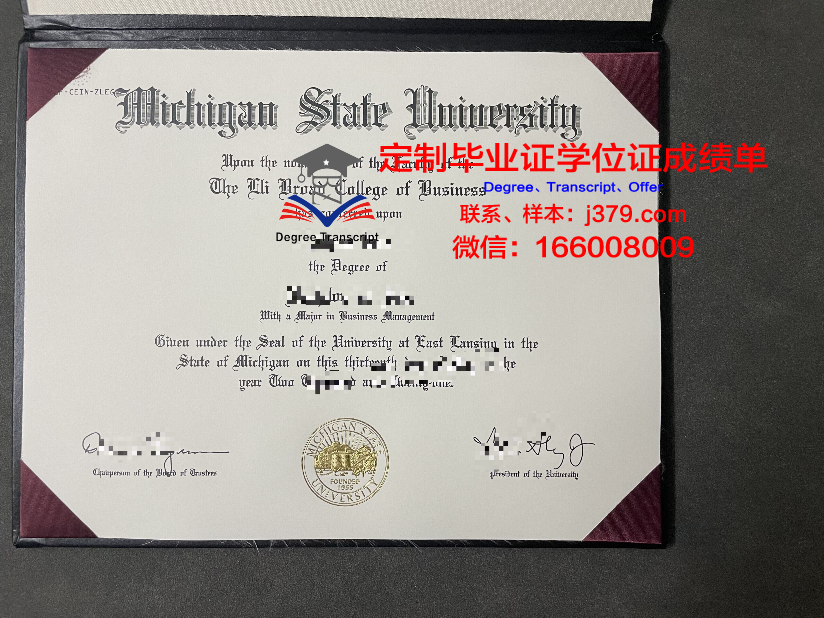硕士学位证的英文简称
- 时间:
- 浏览:1228
- 来源:日本学位证成绩单定制网
Title: Understanding the English Abbreviation for Master's Degree Certificate

The master's degree certificate is an essential milestone in an individual's academic journey, symbolizing the completion of a rigorous postgraduate program. It is not only a testament to one's knowledge and expertise but also a key to unlocking numerous career opportunities. In academic and professional contexts, the English abbreviation for the master's degree certificate is frequently used. This article aims to shed light on the common abbreviations and their significance.

The most widely recognized English abbreviation for the master's degree certificate is "MSc," which stands for "Master of Science." This abbreviation is used when the degree is granted in the fields of science, technology, engineering, and mathematics (STEM). MSc degrees are typically research-oriented, focusing on the development of analytical and problem-solving skills. Examples of MSc programs include Master of Science in Physics, Master of Science in Computer Science, and Master of Science in Environmental Science.
Another common abbreviation is "MA," which stands for "Master of Arts." This abbreviation is used for degrees awarded in the humanities, social sciences, and some other disciplines. MA degrees often emphasize critical thinking, research, and the development of communication skills. Examples of MA programs include Master of Arts in English Literature, Master of Arts in History, and Master of Arts in Philosophy.
For those pursuing a business-related master's degree, the abbreviation "MBA" is widely recognized. "MBA" stands for "Master of Business Administration," and it is a professional degree designed to prepare students for leadership roles in the business world. An MBA program covers various aspects of business management, such as finance, marketing, human resources, and entrepreneurship.
In addition to these abbreviations, there are several others that are specific to certain master's degree programs:
1. MEng: "Master of Engineering" is an abbreviation used for degrees in engineering disciplines. MEng programs focus on advanced engineering principles and their practical applications.
2. MArch: "Master of Architecture" is the abbreviation for degrees in architecture. MArch programs combine theoretical knowledge with practical skills, preparing students for a career in architectural design and planning.
3. MEd: "Master of Education" is the abbreviation for degrees in education. MEd programs are designed for individuals interested in advancing their careers in teaching, educational administration, or policy-making.
4. MLIS: "Master of Library and Information Science" is the abbreviation for degrees in library and information science. MLIS programs focus on the organization, management, and preservation of information resources.
Understanding these abbreviations is crucial for professionals and students alike, as they are frequently used in academic and professional settings. For instance, when applying for a job, mentioning "MSc" or "MA" after one's name can help employers quickly identify the individual's academic background and expertise.
In conclusion, the English abbreviation for the master's degree certificate varies depending on the field of study. The most common abbreviations include MSc, MA, MBA, MEng, MArch, MEd, and MLIS. Familiarity with these abbreviations can help individuals effectively communicate their academic achievements and credentials in both academic and professional environments. As the pursuit of higher education continues to grow in importance, the master's degree certificate and its associated abbreviations will remain a vital part of the global academic landscape.
热门推荐
-
尔湾峡谷社区学院毕业证展示
尔湾峡谷社区学院毕业证展示尔湾峡谷社区学院毕业证、本科、硕士、博士、成绩单、样本图片、diploma案例。IrvineValleyCollegeDiplomaGraduati -
密歇根理工大学毕业证:开启未来的金色钥匙
密歇根理工大学毕业证:开启未来的金色钥匙在当今社会,高等教育已成为衡量个人能力和综合素质的重要标准之一。而毕业证书,则是这一能力的有力证明。今天,让我们一起来了解一下密歇根理 -
雅大学位成绩单定制:打造个性化学术名片
雅大学位成绩单定制:打造个性化学术名片随着社会的发展和教育的进步,越来越多的学生开始关注自己的学术名片——学位成绩单。一份优秀的学位成绩单不仅代表着学生在大学期间的学术成就, -
密歇根州立大学毕业证案例(密歇根州立大学本科留学)
密歇根州立大学毕业证案例近日,密歇根州立大学因为一起涉嫌伪造毕业证的案件而受到了关注。该案件中,一名男子被指控使用伪造的密歇根州立大学毕业证申请工作。这名男子在申请工作时提交



